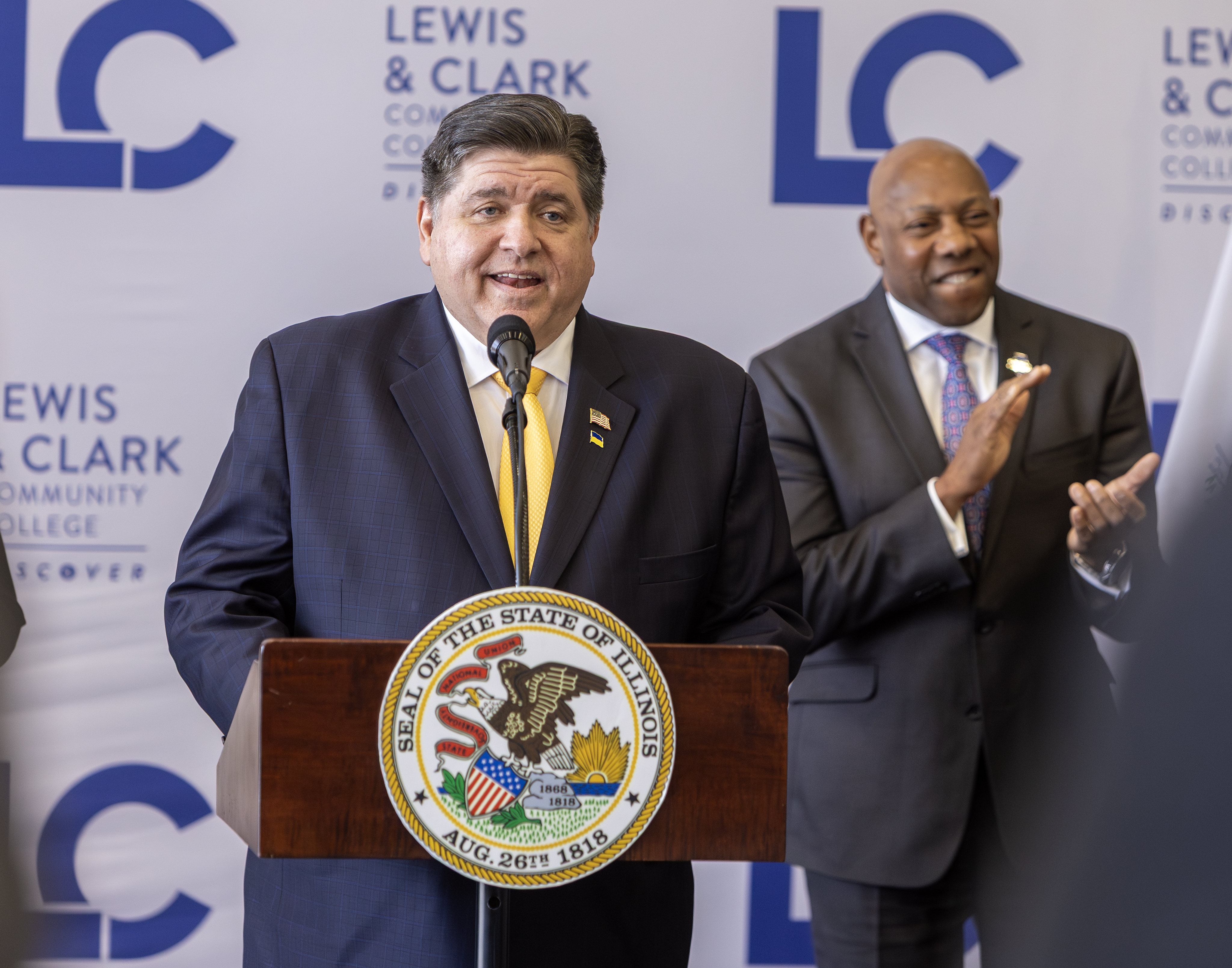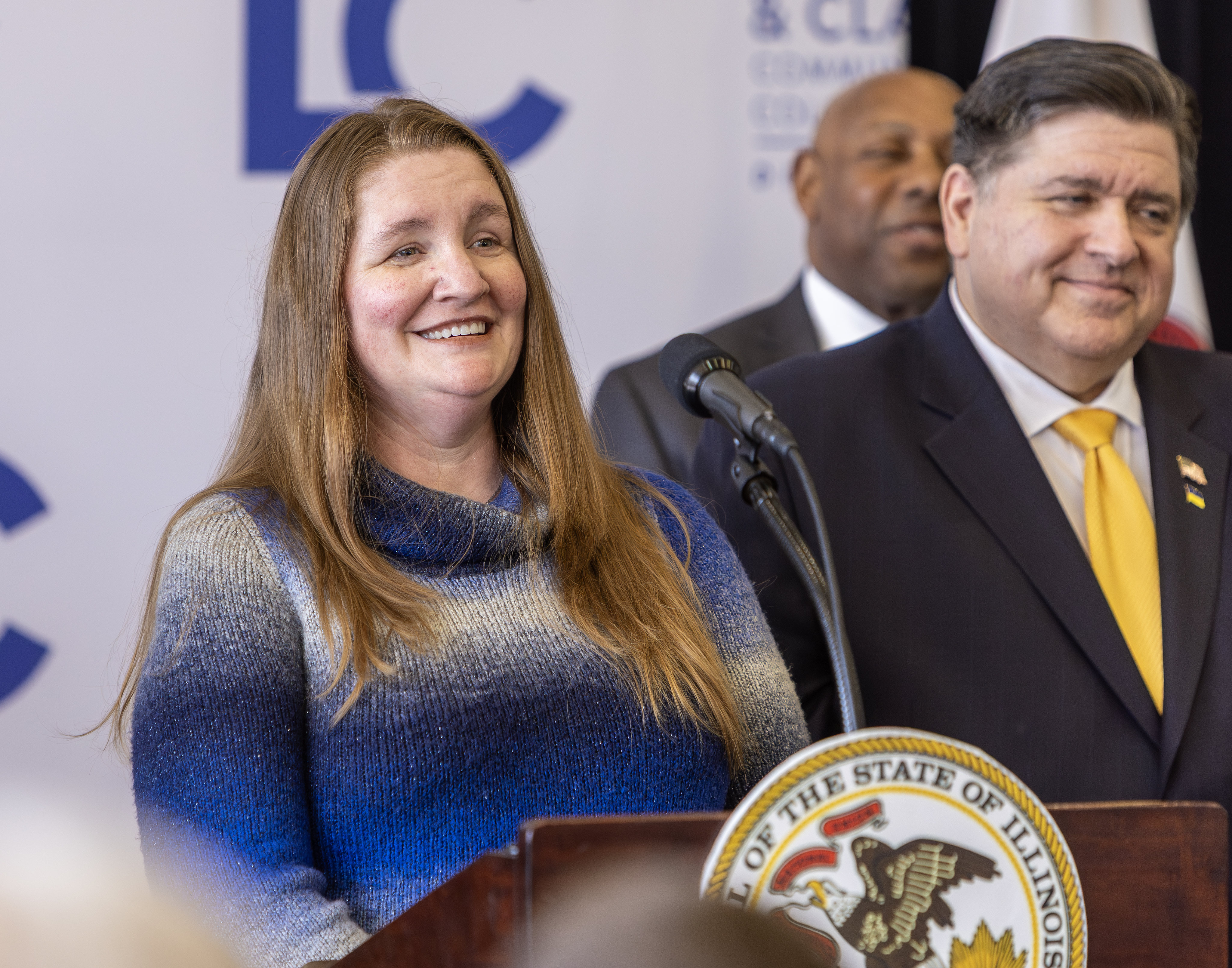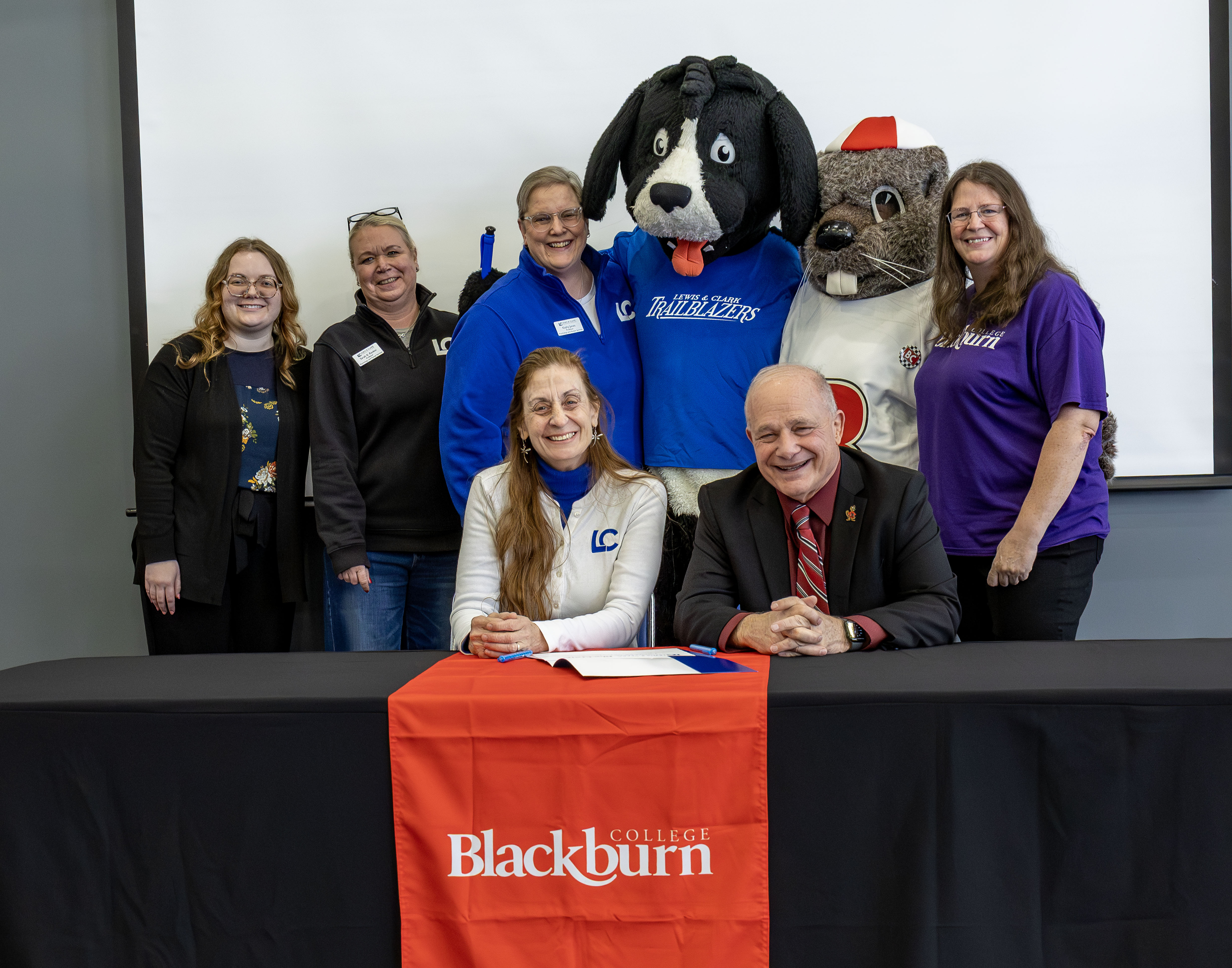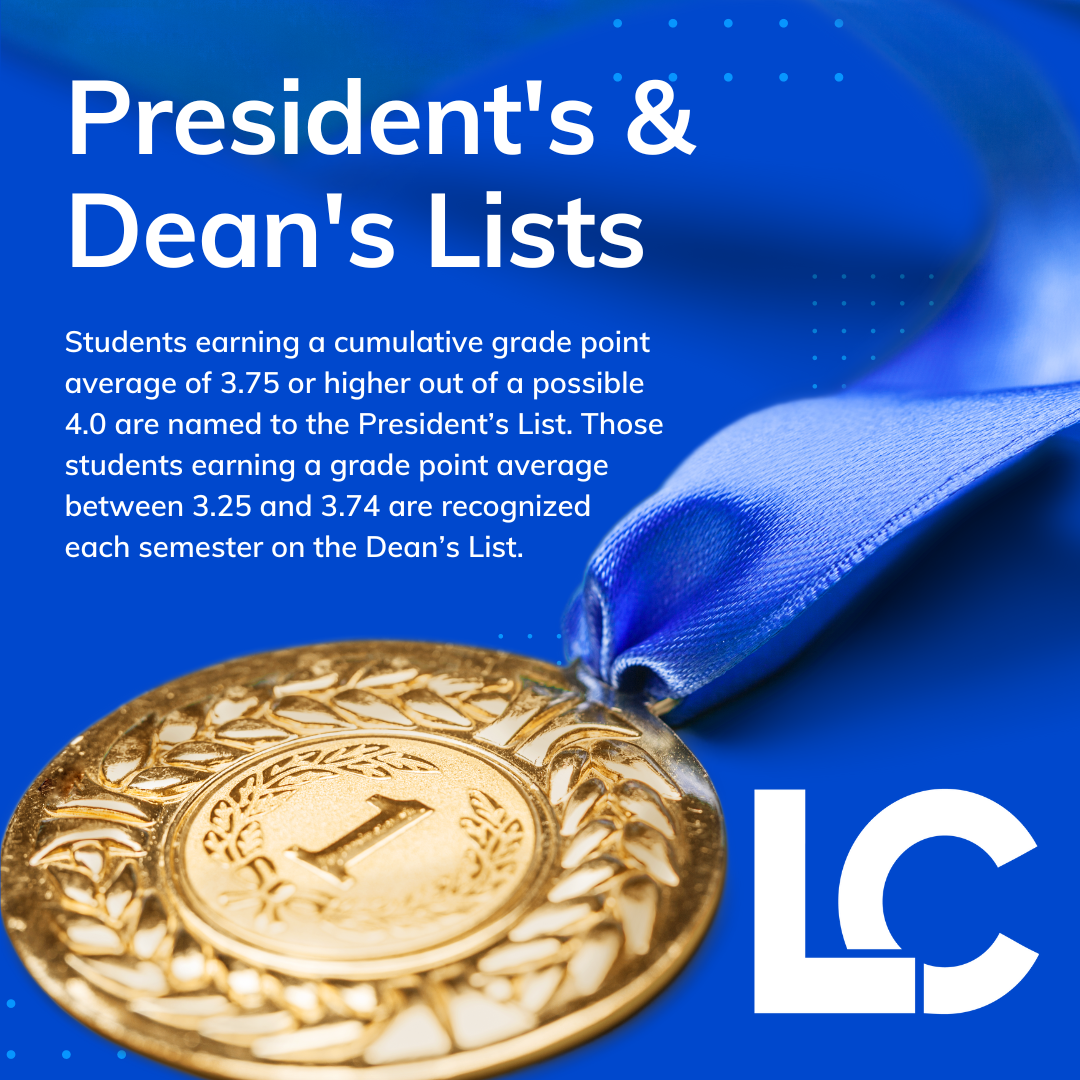
GODFREY – Gov. JB Pritzker and other Illinois lawmakers visited Lewis and Clark Community College Monday, March 3, to propose a new community college baccalaureate program.
“Community colleges like Lewis and Clark have been at the center of our economic agenda from day one of my administration,” Pritzker said. “To build an economy where every Illinoisan can get ahead, we need an education system that can meet people where they are, regardless of their age, background or zip code.”
The proposed legislation, HB 3717, would amend the Public Community College Act to allow community colleges to offer baccalaureate degrees in high-demand career paths. The bill would cap the cost of the final two years of a four-year degree to 150 percent of the associate degree cost, an average of $7,500 annually. Tuition and fees at Lewis and Clark are currently around $4,500 per year for a full-time student, lower than the average paid by full-time students across Illinois. The bill currently sits with the Higher Education Committee, as of March 11.
Lewis and Clark Vice President of Administration Lori Artis said the college has been meeting students where they are for 55 years now, and is dedicated to helping students discover their path to success.
“We already provide opportunities for students to earn the first two years of their bachelor’s degree at an affordable and reduced cost (an average savings of more than $21,000 per student), and we serve students in career and technical education programs who are ready to enter the workforce,” she said. “Our students come from all walks of life – some come to us straight from high school while some come to us later in life with family, work and financial challenges that are also a part of their daily focus.”
That was exactly the case for L&C Student Trustee and Nursing Student Melissa McKaig.

McKaig returned to L&C after 25 years away from school to pursue her Nursing degree. Here, she found the flexibility and support she needed to thrive in a difficult but rewarding career field.
As she looks ahead to graduation, she said she would like to pursue her Bachelor’s Degree in Nursing (BSN), but that attending a four-year school is not a reality for her right now. This legislation, if successful, could change all that.
“I have to pay my bills and do the family thing and all that,” she said. “If we can get a bachelor’s program here – I know I've talked to several of my classmates – we would already be enrolled.”
Illinois Community College Trustees Association Executive Director Jim Reed said 59 percent of Illinois’ community colleges are located in “bachelor deserts,” at least 30 miles away from any public college or university.
In addition, under this bill, community colleges would be required to demonstrate a workforce need in their region that isn’t otherwise being fulfilled. Because community college bachelor’s programs tend to serve Associate in Applied Science (AAS) graduates who often lack direct transfer pathways to a baccalaureate degree, the legislation is not expected to create significant competition with colleges and universities.
“As we work to expand educational access across all of our regions and communities, it is essential for community colleges and universities to strengthen and maintain transfer pathways, acknowledging the need for additional degree options for students facing barriers to transfer routes, and ensuring that all students in Illinois have access to baccalaureate degrees, regardless of location, work schedules or financial circumstance,” L&C President Ken Trzaska said. “The success of our communities truly relies on continued dedication to innovation and collaboration. The work around the community college baccalaureate degree pathways will require everyone to come together and do what is best for our students and our local workforce.”
Pritzker said 70 percent of students who leave the state to attend college or university elsewhere don’t come back. Community college graduates, on the other hand, tend to continue living and working in their communities. For that reason and others, community colleges are better poised to meet the needs of their regions.
Alton Memorial Hospital President and CEO Dave Braasch said there is a significant shortage of nurses and qualified healthcare workers in the field nationwide, and that this legislation could help fill the talent pipeline needed to continue serving patients with an excellent standard of care.
“To provide care at our hospital, it takes an incredibly talented and dedicated team of about 1,200 staff members and physicians,” he said. “We don’t just serve the community – we are a part of it. Our patients are our neighbors, friends, and often our own family members.”
Many who walk the hallways of AMH and provide patient care are L&C grads.
“The education they receive here and institutions like this must be innovative and well-funded to create programs that ensure a workforce we will need for not only this community, but all the communities in our state far into the future,” Braasch said.
Madison Albert, who studies Occupational Therapy at L&C, said furthering her education in the community where she grew up is meaningful to her.
“There are many reasons why I would like to further my education, especially at Lewis and Clark,” she said. “One of those is the cost factor – I want to be able to afford my education – and the convenience of living right down the road from campus. Smaller class sizes open the opportunity for more intimate classroom settings, allowing professors to tailor lesson plans to your needs, and give you a personalized education.”
Albert and McKaig are not alone. According to Reed, recent research conducted with the support of the Joyce Foundation showed that many Illinois students face significant barriers to completing their bachelor's degree.
“To understand these challenges, we interviewed 2,400 students across 10 community colleges,” Reed said. “Seventy-eight percent of those students are attending and balancing jobs while getting their education. We noted that three out of four students wanted to pursue a bachelor's degree at their current college, citing cost, geography and work and family obligations as major challenges.”
State Rep. Tracy Katz Muhl (D-57), the chief sponsor of HB 3717, said more than 78 percent of associate degree seekers at community colleges aspire to get a four-year degree, but the overall completion rate over that four-year period is only about 16 percent; even lower for non-traditional and minority students. Community colleges specifically work toward reaching those underserved populations and helping them be successful.
“The focus of our work as educators is to support student goals, no matter what,” L&C President Ken Trzaska said.
Sometimes, more support can go a long way.
Lt. Governor Juliana Stratton said she knows the impact community colleges can have because her mother, a community college educator, served as her students’ advocate, teaching them how to leverage their own uniqueness to meet their full potential.
“Too many people who find the courage to ask for education are met with barriers,” Stratton said. “This program removes a substantial boundary by closing the distance between would-be students and four-year programs.”
According to a press release from the governor’s office, 24 states have already implemented policies that allow community colleges to offer baccalaureate degree options. Illinois is hoping to join that list.
“There is a desire and energy in fields where Illinois needs workers most, like in nursing, early childhood and advanced manufacturing,” Katz Muhl said.
Pritzker said enrollment at Illinois community colleges has grown for the third consecutive year and outpaces the national average by about 3 percent. The Illinois’ community college system is the third largest community college system in the nation.
“To meet Illinois’ current and future workforce needs, we need to meet more students where they are, and for many, that means staying close to home and providing more affordable education opportunities,” said Illinois Community College Board Executive Director Brian Durham. “Baccalaureate degrees at the community college level open access to students that might otherwise not be able to pursue these opportunities – not because they aren’t smart or hard-working, but because they simply lack the resources to do so.”
The governor said his administration has long shown its support of higher education by investing in infrastructure and financial aid, including the addition of more than $310 million in MAP grant funding to help break down financial barriers and ensure education is an option for anyone who wants to pursue it.




